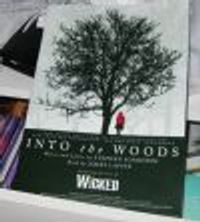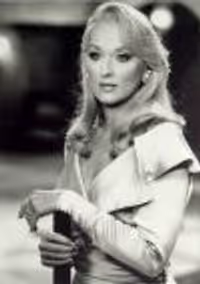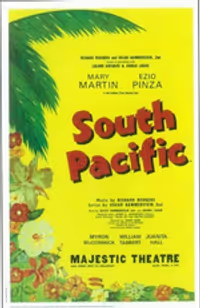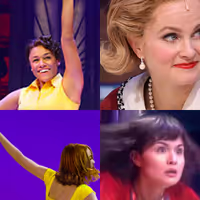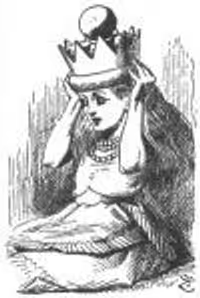A Little Night Music film- what went wrong?
rattleNwoolypenguin
Broadway Legend Joined: 10/11/11
#1A Little Night Music film- what went wrong?
Posted: 10/5/17 at 10:12pm
I'm just curious what people think of the A Little Night Music 1977 adaptation.
It's definitely bad, though I can't put my finger on completely why. I'm curious to know why others find it bad or doesn't work. I mean it's so much of the original cast too. I love Diana Rigg. She's the one strength I found
#2A Little Night Music film- what went wrong?
Posted: 10/5/17 at 10:34pm
It was my first introduction to the show ( on video in 1982 ) , so for me it’s really not that bad
Alex Kulak2
Broadway Legend Joined: 9/11/16
#3A Little Night Music film- what went wrong?
Posted: 10/5/17 at 10:39pm
Hal Prince is an amazing theatrical director, but he doesn't know how to direct a movie. The cinematography is flat and unmotivated, and he somehow managed to get a bored performance out of Elizabeth Taylor, one of the most charismatic women ever filmed. I'm sure if you get a director who can better direct people for film, as well as someone with an eye for cinematic humor, you could make a fantastic version of this movie.
It sounds weird, but I'd like to see how the Coen Brothers would direct this. They're fantastic with pulling humor out of cinematography and editing. Even something as simple as shot-reverse shot can make you laugh in a Coen Brother's movie.
rattleNwoolypenguin
Broadway Legend Joined: 10/11/11
#4A Little Night Music film- what went wrong?
Posted: 10/5/17 at 10:42pm
That really was a big thing I noticed. The show is so funny and has the potential to be so funny. The humor is lost in the movie
ScottyDoesn'tKnow2
Broadway Legend Joined: 1/22/14
#5A Little Night Music film- what went wrong?
Posted: 10/5/17 at 11:35pm
Didn't a film critic say Hal Prince directed this as if he had never seen a movie before? Ouch.
#6A Little Night Music film- what went wrong?
Posted: 10/5/17 at 11:51pm
This is an interesting review/analysis of the film by Musical Hell
#7A Little Night Music film- what went wrong?
Posted: 10/6/17 at 12:05am
Lol what went right?
Seriously, this musical is definitely in need of a remake.
#8A Little Night Music film- what went wrong?
Posted: 10/6/17 at 1:31am
Thanks for the link NoWaWarning!!!
#9A Little Night Music film- what went wrong?
Posted: 10/6/17 at 1:55am
Of course! They dissect a lot of flawed movie musicals on their channel. It's good stuff ![]()
#10A Little Night Music film- what went wrong?
Posted: 10/6/17 at 2:06am
Oh, I'm already on my fourth one, not counting A Little Night Music. Again, couldn't thank you enough!!!
#11A Little Night Music film- what went wrong?
Posted: 10/6/17 at 9:33am
Taken verbatim from my blog:
"I have several problems with the Night Music movie, but the two chief ones are Liz Taylor’s portrayal of Desiree Armfeldt and what happened to the gorgeous score of the stage show. While I understand the studio probably needed a big name to fill the leading lady role, Taylor was certainly an…um…inspired choice. She isn’t believable as the irresistibly troubled diva. Her “Send in the Clowns” is fairly forgettable- and while we’re talking about the music, this film cut some of the show’s best numbers, including “Liaisons” (reducing the great Hermione Gingold to a throwaway role) and “In Praise of Women” (which pretty much defines the Count’s entire character)."
#12A Little Night Music film- what went wrong?
Posted: 10/6/17 at 9:36am
Pretty much everything except the casting of Diana Rigg.
#13A Little Night Music film- what went wrong?
Posted: 10/6/17 at 9:57am
I don't think Prince (or Sondheim to be honest) really understand the medium of film. Sondheim has repeatedly said in interviews things that essentially reveal that he thinks film should be naturalistic (reasons why he doesn't like the movie of West Side Story and why he praises the cutting of the 'ghosts' in the film of Sweeney Todd). But the 'magic realism' of the musical is the only thing that separates it from its source material. In cutting the Lieder singers and things like "The Miller's Son" to keep the film realistic, it completely lost what makes the piece magic on stage and potentially unusual and striking for cinema.
So essentially, what they ended up with is a really subpar remake of "Smiles of a Summer Night.'
#14A Little Night Music film- what went wrong?
Posted: 10/6/17 at 10:00am
How about the most glaring adaptation issue: they moved the setting to Austria.
#15A Little Night Music film- what went wrong?
Posted: 10/6/17 at 10:02am
Was there ever given an explanation why they did that? Filming locations?
#16A Little Night Music film- what went wrong?
Posted: 10/6/17 at 10:13am
ScottyDoesn'tKnow2 said: "Didn't a film critic say Hal Prince directed this as if he had never seen a movie before? Ouch."
"You know what you're in for near the beginning, when the hero (Len Cariou) is greeted with "Good afternoon, Lawyer Egerman." This film is a cut above Song of Norway and The Blue Bird, but it's in that general sylvan-settings category. It's an adaptation of the Broadway show, which was a reworking, with music and lyrics by Stephen Sondheim and a book by Hugh Wheeler, of Ingmar Bergman's Smiles of a Summer Night. What was lyrical farce in the Bergman film has now become clodhopping operetta. This picture has been made as if the director (Harold Prince) had never seen a movie. With Diana Rigg and Lesley-Anne Down, who manage to get a performance rhythm going in some of their scenes, and with Elizabeth Taylor. New World. Color."
Pauline Kael
Kael's suggestion here might be that Wheeler's libretto and Sondheim's songs make for a clodhopping match even on stage. Obviously, many would profoundly disagree.
But if her implication is that for A LITTLE NIGHT MUSIC to work better on screen, even with much better direction than Prince brought to his film, the "book" would have to be very different than Wheeler's and a whole lot more like Bergman's, I completely agree.
Smiles of a Summer Night is a cinematic triumph and, along with All About Eve, quite likely one of the two best sophisticated comedies ever originally drafted for the screen. It's a great shame Bergman didn't write and direct more comedies. And that with the exception of Magic Flute, he didn't make musicals. There was once talk of him teaming with Streisand on a movie of The Merry Widow. That project then seemed very exciting. Now it seems like a might-have-been might-have-masterpiece.
By far the best scene in Prince's movie was the new version of Glamorous Life. Prince's direction of that number shows much of what distinguished him as a stage director: passion for bringing new material to life, a singular understanding of character, narrative, exposition, and musicality and an unparalleled bag of magic tricks to energize a song. Perhaps the song is more right for the movies because it was written for the movies. But I wonder if Prince only believed in his powers as a movie director and owned that in his direction of that scene. And whether, because this new song was the only new song for the film, it was the only time during the film's preparation and filming that he truly caught his stride and felt in the element of his livelihood.
Because the energy he brought to that scene is AWOL from the rest of the movie.
ScottyDoesn'tKnow2
Broadway Legend Joined: 1/22/14
#17A Little Night Music film- what went wrong?
Posted: 10/6/17 at 10:25am
Ha! Pauline Kael would write that.
Rinaldo
Understudy Joined: 5/5/09
#18A Little Night Music film- what went wrong?
Posted: 10/7/17 at 9:45pm
I enjoy the writing of Kael (I have all her books, and followed her avidly during her New Yorker tenure), but that's not the same as saying I go along with all her opinions, not by a long shot. She definitely had her blind spots, one of which is anything reminiscent of operetta. So she was never going to like any version of A Little Night Music.
Nevertheless, she did have some accurate insights, and she kind of said for all time with "This picture has been made as if the director (Harold Prince) had never seen a movie." He had zero feel for movie syntax or rhythms, and wisely never tried to do it again. Other problems include the worst cinematographer in the business (seriously, look at anything Arthur Ibbetson did -- it always seems to be happening underwater), the shift to Vienna (which I assume had to do with where the funding was coming from, but it was still a mistake to accept), and an unimaginative screenplay, which rather than expanding the fantasy of the stage show, eliminated it (and in the process eviscerated the score). And all of those matter. But it's really Prince's work that accounts for 90% of the bad.
The good? The new Tunick orchestrations, Diana Rigg, and looking at Lesley-Anne Down.
#19A Little Night Music film- what went wrong?
Posted: 10/7/17 at 10:56pm
Rinaldo said: "The good? The new Tunick orchestrations, Diana Rigg, and looking at Lesley-Anne Down."
Of course, the film was able to win Jonathan Tunick an Oscar in the retired category of Best Adapted Score, which was how he received the 'O' in his EGOT.
bk
Broadway Legend Joined: 7/20/03
#20A Little Night Music film- what went wrong?
Posted: 10/8/17 at 12:49am
QueenAlice said: "Was there ever given an explanation why they did that? Filming locations?"
That's where the film's financiers wanted it shot.
rattleNwoolypenguin
Broadway Legend Joined: 10/11/11
#21A Little Night Music film- what went wrong?
Posted: 10/8/17 at 1:37am
The story also lends itself to looking beautiful and ornate and classy.
The movie is really ugly and low saturated.
Videos


